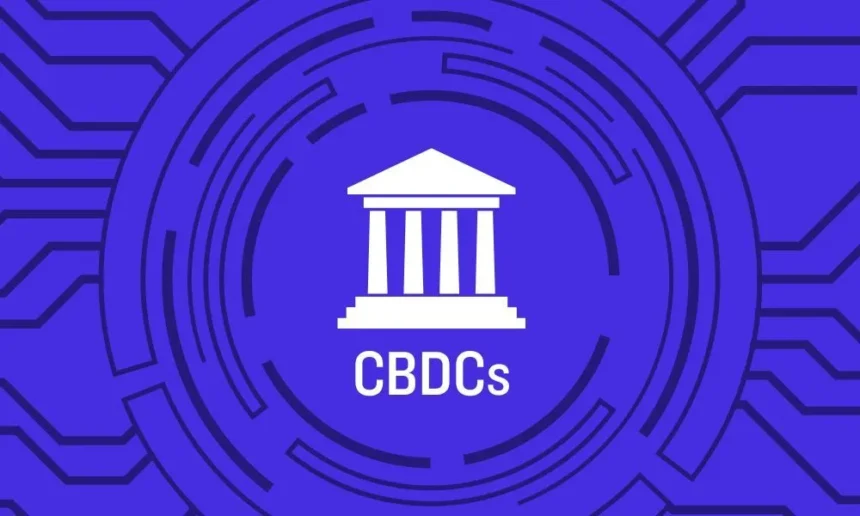The financial world is undergoing a massive transformation, and Central Bank digital currencies (CBDCs) are at the forefront of this change. Governments and financial institutions worldwide are exploring the potential of digital currencies issued by central banks to enhance the efficiency and security of financial transactions.
CBDCs are digital forms of national currencies, backed and regulated by the central banks of respective countries. Unlike cryptocurrencies such as Bitcoin and Ethereum, which are decentralized, CBDCs operate under governmental control, ensuring stability and trust. As digital payments continue to rise, the global financial system is witnessing a paradigm shift that could redefine how we interact with money.
The Rise of CBDCs: Why Are They Gaining Popularity?
Several factors are driving the growing interest in CBDCs. One primary reason is the declining use of physical cash. As digital transactions become more common, central banks recognize the need to offer a digital alternative that maintains the reliability of traditional money.
Another key factor is the increasing competition from cryptocurrencies and stablecoins. Unlike unregulated digital assets, CBDCs provide a secure and government-backed alternative that retains the trust of citizens and businesses. Additionally, CBDCs have the potential to enhance financial inclusion by providing digital access to banking services for unbanked populations in developing countries.
How CBDCs Differ from Cryptocurrencies
While both CBDCs and cryptocurrencies operate in digital form, their core principles differ significantly. Cryptocurrencies are decentralized and rely on blockchain technology to function independently of central authorities. This makes them volatile and susceptible to price fluctuations.
In contrast, CBDCs are issued and controlled by central banks, ensuring stability and regulation. They function as legal tender, meaning they are widely accepted for transactions, unlike cryptocurrencies, which are still facing regulatory challenges in many regions. CBDCs also offer better security and fraud prevention measures compared to decentralized digital assets.
Benefits of Implementing CBDCs
The introduction of CBDCs comes with several advantages that can revolutionize financial systems worldwide. One significant benefit is increased transaction efficiency. Traditional banking systems involve intermediaries that slow down transactions, whereas CBDCs can facilitate instant and cost-effective payments.
CBDCs can also enhance monetary policy effectiveness. Central banks can directly influence the economy by managing digital currency supply, ensuring better inflation control. Additionally, CBDCs improve financial transparency, reducing the risk of money laundering and illicit transactions.
Challenges and Concerns Surrounding CBDCs
Despite their potential benefits, CBDCs also pose challenges that must be addressed. One major concern is the issue of privacy. As central banks monitor digital transactions, there is a risk of government overreach and reduced financial privacy for individuals.
Another challenge is the risk of cyber threats. Digital systems are vulnerable to hacking, and ensuring robust cybersecurity measures will be crucial for the successful implementation of CBDCs. Additionally, banks and financial institutions may face disruption, as CBDCs could reduce the reliance on traditional banking services.
Global Adoption of CBDCs: Which Countries Are Leading the Way?

Several nations are actively exploring or piloting CBDCs. China is leading the race with its Digital Yuan (e-CNY), which has already undergone extensive testing in various cities. The European Central Bank is also working on the Digital Euro, aiming to offer a secure digital payment option for European citizens.
In the United States, the Federal Reserve is researching the feasibility of a digital dollar. Other countries, such as India, Nigeria, and Sweden, are also making significant progress in CBDC development, signaling a potential shift towards a global digital currency ecosystem.
The Future of CBDCs: Will They Replace Cash?
While CBDCs have the potential to revolutionize the financial landscape, the complete replacement of cash is unlikely in the near future. Many individuals still prefer physical money for privacy and security reasons. However, as digital transactions become more prevalent, CBDCs could complement cash and provide an efficient alternative.
As central banks continue their research and development, the role of CBDCs in the economy will become clearer. The successful implementation of CBDCs depends on balancing innovation, regulation, and user trust to ensure a seamless transition into the digital financial era.
Conclusion: Are CBDCs the Next Step in Financial Evolution?
CBDCs represent a significant evolution in the monetary system, offering numerous advantages such as increased efficiency, financial inclusion, and better regulatory control. However, challenges such as privacy concerns and cybersecurity risks must be carefully managed.
As governments and central banks work towards refining CBDC frameworks, their impact on global finance will become more evident. Whether CBDCs will completely replace traditional money remains uncertain, but their role in shaping the future of finance is undeniable. The transition towards digital currencies is happening, and CBDCs are poised to be a crucial part of this financial revolution.
